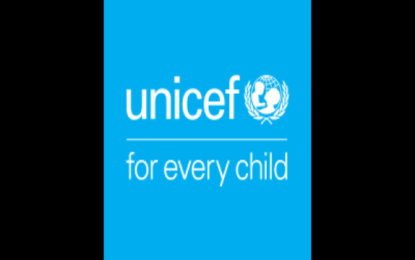
MANILA – The United Nations Children’s Fund (UNICEF) in collaboration with the Council for the Welfare of Children, the National Economic and Development Authority, and the Philippine Statistics Authority launched on Monday a platform designed to provide insights into children’s issues in the Philippines.
In a statement, UNICEF Philippines said the Situation of Children of the Philippines (www.situationofchildren.org/ph) analyzes six main dimensions and 25 subdimensions of children’s rights, including health and nutrition, education, protection, safe and sustainable environment, child poverty and social protection, civil and participation rights.
According to UNICEF Philippines, the country has a wealth of data about children but there are key gaps and issues in terms of granularity, periodicity and timeliness, accessibility, reliability, and consistency.
It added there are also not enough data on child exploitation while other key data gaps also exist in the areas of disaster risk preparedness, planning, and response monitoring, climate change impacts on children, social protection and public financing for children, children with disabilities, early childhood education, children’s civil rights and participation, and richer local-level data on children in the provincial, municipal or city, and barangay levels.
By launching the platform, UNICEF hopes to engage stakeholders through the virtual platform in discussing evolving evidence needs and gaps, as well as advocate for strengthening evidence-based decision making.
The data portal features over 80 key indicators and around 500 data visualizations based on data dating back to 1989 and up to 2023, with subnational breakdowns for certain indicator.
For each subdimension, the site also offers a comprehensive analysis and visualization of data, including key progress, indicators, child rights, equity and risk, legislation, policy, bottlenecks, and relevant publications.
A section covers cross-sectoral issues such as gender, disability, early childhood, and adolescents.
The platform also features ‘The Longitudinal Cohort Study of Filipino Children’, tracking the lives of a nationally representative sample of 5,000 children, along with their households and communities.
The study which will continue until 2030, is a partnership with the Philippine government, the Australian government, United Nations Population Fund and UNICEF.
“Every child counts. Understanding the situation of children is essential to prioritize, design and monitor policies and actions that effectively support the realization of children’s rights. When the right data and evidence are in the right hands at the right time, decisions can be better informed, more equitable, and more likely to protect children’s rights,” UNICEF Philippines Representative Oyunsaikhan Dendevnorov said. (PNA)

